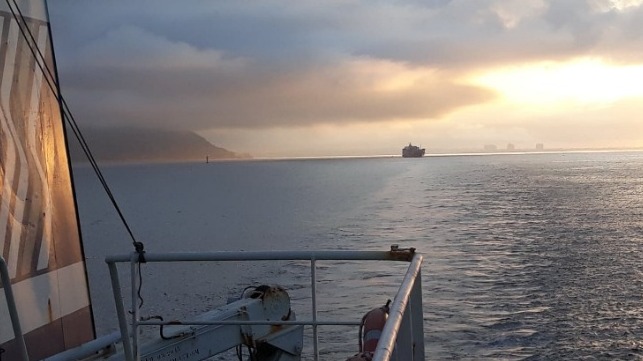The Road to Green-Land

Although shipping is undoubtedly - and by far - the most efficient/greenest way of transporting large cargos across long distances, it is clear that the industry is under increasing pressure from pretty much everyone, from countries and international organizations all the way to investors and pressure groups, to become even greener. Given the industry’s critical role as the connecting tissue of global logistics and its impact on the overall economy this is no simple task to achieve.
On the one side of this difficult equation lies the (real or perceived) urgency of tackling the potentially climate-destabilizing effects of shipping’s greenhouse gases. On the other, one can find a series of challenges:
• The extremely complicated economics of doing so (including who-pays-for-what; what is the actual financial cost of shipping’s environmental impact; and over what time-horizon should such investments be amortized).
• The untested technical solutions (Does it work? What are the side-effects? What is the optimal solution? Short-term vs. long-term optimization).
• The structural lack of coordination between an increasing number of well-wishers and a variety of decision makers with different agendas to follow.
To the above already byzantine picture, a new class of “green pressure” was recently added by a group of financiers, who launched the Poseidon Principles initiative. This is certainly a well-intended initiative, likely to gather momentum and seemingly pointing in the right direction. However, as with all new initiatives, it will eventually be judged by its end result. In any case, it is probably going to make the operating environment even more convoluted.
Should one try to rise above all this multi-dimensional hubbub, three things seem clear:
First that “this time it is different” - there is no way that either the industry or any of its players who want to be around for the long run will get away with greenwashing.
Second that in the process of getting to Green-land, most shipping markets will get (even more) fragmented: whether we’re talking about bunkering, anti-emission equipment - and now - financing, smaller sub-segments have been (and/or will be) created.
Third, and a result of the previous point, availability, not to mention pricing, of assets, products and services used either in the course of regular business or as a solution to comply with existing or upcoming regulations, will become more volatile and will look, frankly, erratic. As such, decisions may have to be made based on how the cost of temporary non-compliance compares to the cost of using the wrong solution to comply with regulations that are still in an early form.
Is it all bad then?
It never is.
First, shipping is an industry notoriously known for its volatility. Almost all actors in this play are used to having the ground wobbling below their feet, day-in, day-out, and are familiar with change. Some rise above the level of simply keeping their fingers crossed, and proactively manage it. The best (and/or the luckiest) make money out of it.
Second, this uncertainty will probably help contain (in addition to the less-than-ample availability of financing) the volume of ordering of newbuilding vessels, which can only be a good thing, at least for the ones already active in the market.
A thousand mile journey begins with a single step, as Laozi said… We’re certainly not at the first step of this journey but we’re not very far down the road either…
Dimitri G. Vassilacos and Jason Dallas are Partners at Ship Finance Solutions (SFS), a boutique financial consulting firm specializing in the shipping sector. Prior to that they had multi-year careers, mostly in the banking sector, including running the Greek Shipping divisions of Citibank, National Bank of Greece and Piraeus Bank.
The opinions expressed herein are the author's and not necessarily those of The Maritime Executive.
